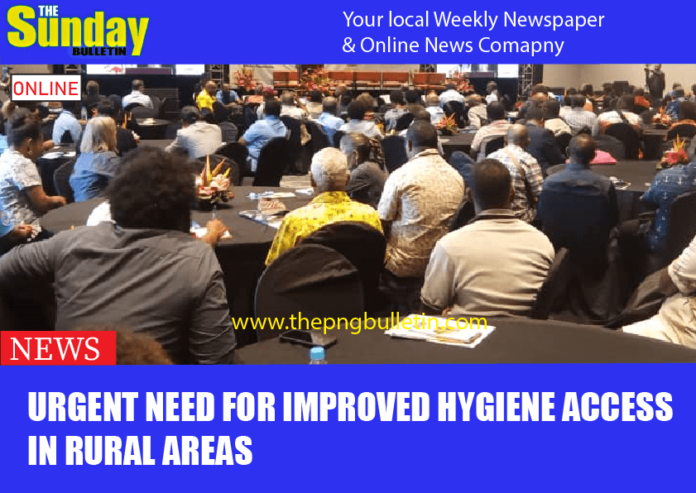By MIRIAM MALAWA
NATIONAL Water, Sanitation, and Hygiene (WaSH) Coordinator Takale Tuna has highlighted the need for improved hygiene access in rural areas, where only 25% of the population practices safe hygiene behaviours compared to 62% in urban regions.
Speaking at the 2024 WaSH Symposium, organized by the Department of National Planning and Monitoring, Tuna revealed that schools are particularly affected, with just 12% having access to safe hygiene practices.
The two-day symposium, themed “Resilient and Sustainable WaSH in PNG through Collective Actions,” brought together international partners, and stakeholders to discuss strategies for strengthening the WaSH program across Papua New Guinea.
Reflecting on the current state of WaSH services, Tuna shared findings from the latest Joint Monitoring Programme (JMP) report, stating significant disparities between urban and rural areas.
“While 87% of urban residents have access to safe drinking water, rural areas lag behind at 44%. The situation in schools and healthcare facilities is equally concerning, with only 47% of schools and 33% of healthcare facilities having access to clean water,” Tuna said.
He added that the sanitation situation is even more troubling.
“Only 20% of urban areas and 15% of rural areas have access to improved sanitation services. Schools and healthcare facilities also face major gaps, with 46% of schools and 20% of healthcare facilities having access to adequate sanitation,” he noted.
Tuna stresses the urgency of collective action to address these disparities, especially in rural areas, schools, and healthcare facilities.
“These figures highlight the urgent need for sustained efforts to bridge these gaps,” he stressed.
Tuna reaffirms the government’s commitment to achieving the National WaSH Policy targets by 2030 which looks at the goal of providing over 70% of the population with access to safe drinking water, sanitation, and hygiene.
He acknowledged that while the target is ambitious, it is crucial to meet the Sustainable Development Goals (SDGs) and eradicate open defecation.
Tuna also thanked Australian Government’s Department of Foreign Affairs and Trade (DFAT) and the WaSH Consortium for their ongoing support.
“Their collaboration has been vital in advancing our efforts to improve WaSH services and build resilient systems that can withstand future challenges while ensuring sustainable benefits for our communities,” he said.
The symposium is expected to drive further dialogue and cooperation toward achieving these critical goals.

